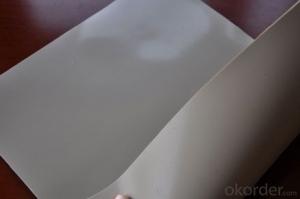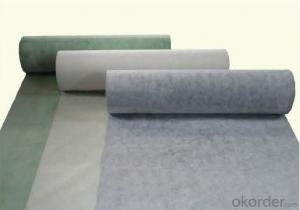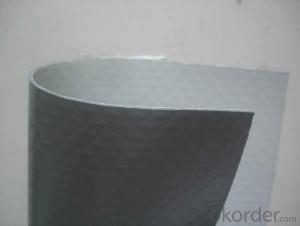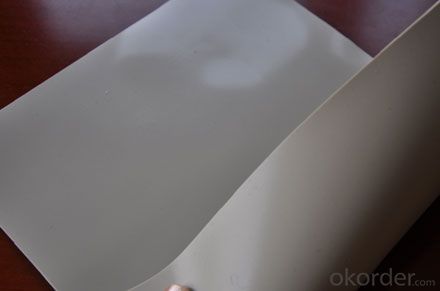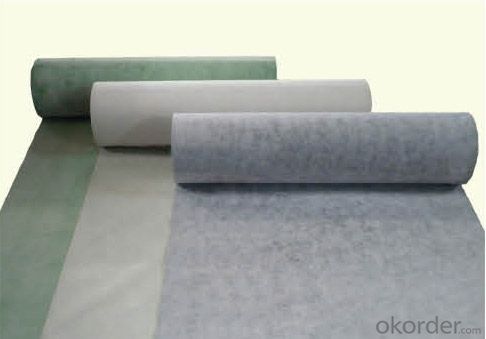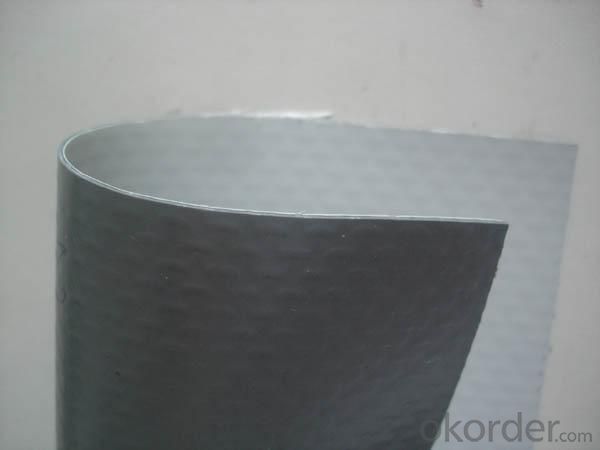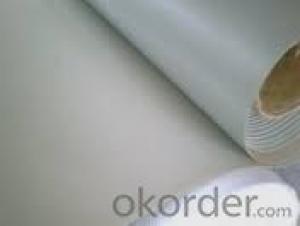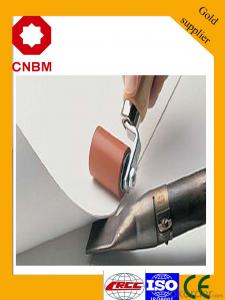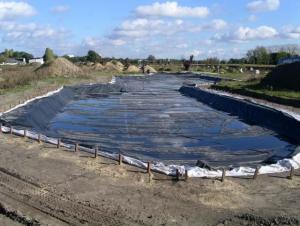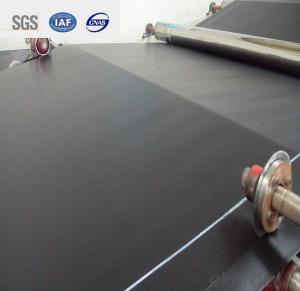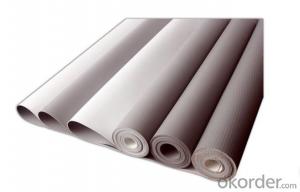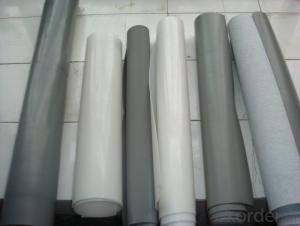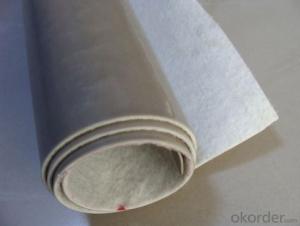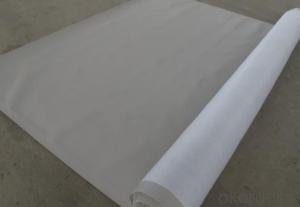Polyvinyl Chloride Waterproof Membrane Roll
- Loading Port:
- China main port
- Payment Terms:
- TT OR LC
- Min Order Qty:
- 5000 m²
- Supply Capability:
- 100000 m²/month
OKorder Service Pledge
OKorder Financial Service
You Might Also Like
Specification of PVC Waterproofing Membrane
Length | 20m/roll or customized |
Width | 2.05m |
Thickness | 1.2mm; 1.5mm; 2.0mm |
Type | Homogeneous, Reinforced, Fabric back |
If Exposed | Exposed and Non-exposed |
Color | White, Grey or customized |
Introduction of PVC Waterproofing Membrane
Polyvinyl Chloride (PVC) waterproof membrane is a new polymer waterproof membrane which is made from polyvinyl chloride resin, and mixed with plasticizer, filler, antioxygen, ultraviolet absorber and other auxiliaries.
Features of PVC Waterproofing Membrane
1) Excellent aging resistance. Service life of roofing material is over 20 years;
service life of underground material is over 50 years.
2) Root resistant penetration, specially used on planting roof.
3) Welding installation. Joints are solid and environment friendly, no pollution.
4) High tensile strength, good elongation and dimensional stability.
5) Good plasticity, easy and suitable for details installation.
6) Fireproof. Fire extinguished out of the ignition resource.
7) Surface is smooth, no fading and dirty resistant.
Types of PVC Waterproofing Membrane
N1—Exposed PVC waterproof membrane.
(It is mainly used as details treatment for exposed roof waterproof project)
N2—Non-exposed PVC waterproof membrane.
(It is mainly used as details treatment for non-exposed roof waterproof project)
L1—Exposed PVC waterproof membrane with fabric.
(It is mainly used for exposed roof waterproof project)
L2—Non-exposed PVC waterproof membrane with fabric.
(It is mainly used for non-exposed roof waterproof project)
W1—Exposed reinforced PVC waterproof membrane .
(It is mainly used for steel structure roof exposed waterproof project)
W2—Exposed reinforced PVC waterproof membrane .
(It is mainly used for steel structure roof non-exposed waterproof project)
FAQ of PVC Waterproofing Membrane
a.Can we get some samples before place order?
Answer: We can send the free samples to you by freight collect.
b.How many years can your PVC membrane guarantee?
Answer: We will guarantee the quality for 5 years at least.
c.Which countries you ever export the product?
Answer: We export the PVC membrane to South Africa, Middle east and even European countries.
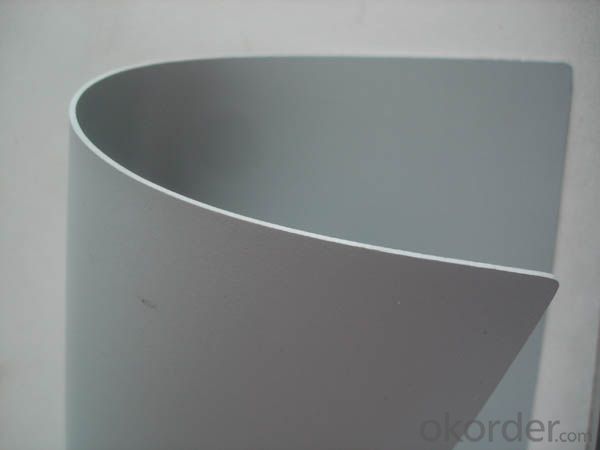
- Q: Does a waterproofing membrane provide any insulating properties?
- No, a waterproofing membrane does not provide any insulating properties. Its primary function is to prevent water penetration and protect the underlying structure from moisture damage.
- Q: Can a waterproofing membrane be used in conjunction with insulation materials?
- Using both insulation materials and a waterproofing membrane together is often recommended in order to protect buildings from moisture and improve energy efficiency. The waterproofing membrane acts as a barrier against water infiltration, while the insulation materials help regulate temperature and minimize heat loss or gain. By combining these components, the building envelope can effectively shield against water damage and maintain a comfortable indoor environment. Proper installation and compatibility between the waterproofing membrane and insulation materials are crucial for achieving optimal performance and long-lasting results.
- Q: Where can waterproofing membranes be used?
- Waterproofing membranes can be used in a variety of applications such as basements, roofs, bathrooms, swimming pools, tunnels, and foundations to prevent water penetration and protect the underlying structures from damage.
- Q: Does a waterproofing membrane prevent mold and mildew growth?
- Yes, a waterproofing membrane can help prevent mold and mildew growth. Mold and mildew thrive in damp and moist environments, and a waterproofing membrane helps to create a barrier that prevents water from seeping into the surfaces it is applied to. By keeping moisture out, it reduces the conditions that promote mold and mildew growth. However, it is important to note that while a waterproofing membrane can be effective in preventing mold and mildew, it does not guarantee complete protection. Proper ventilation and regular maintenance are also essential in preventing mold and mildew growth.
- Q: How does a waterproofing membrane handle seismic movements?
- A waterproofing membrane is designed to be flexible and able to withstand seismic movements. It is typically made of materials such as rubber or modified bitumen that have high elongation properties, meaning they can stretch and move with the building during an earthquake without tearing or breaking. This flexibility allows the membrane to remain intact and maintain its waterproofing capabilities even when subjected to significant seismic movements.
- Q: Can a waterproofing membrane be covered or concealed by other finishes or materials?
- Yes, a waterproofing membrane can be covered or concealed by other finishes or materials. This is commonly done in construction projects to create a visually appealing and functional surface while still ensuring the waterproofing integrity of the structure.
- Q: Can a waterproofing membrane be installed by a homeowner, or is professional installation necessary?
- While it is technically possible for a homeowner to install a waterproofing membrane, professional installation is highly recommended. Waterproofing membranes require specialized knowledge and expertise to ensure proper installation and effectiveness. Professionals have the necessary skills, tools, and experience to address potential challenges and ensure a long-lasting and reliable waterproofing solution. Additionally, professional installation often comes with warranties and guarantees, providing homeowners with added peace of mind.
- Q: Are waterproofing membranes resistant to rodent and insect infestation?
- Waterproofing membranes are not typically designed with specific resistance against rodent and insect infestation in mind. While their main purpose is to safeguard structures from water damage, they might offer some degree of protection against pests. However, if rodents or insects are determined to invade a particular area, they can discover ways to circumvent or harm the membrane. To effectively prevent infestation by rodents and insects, it is recommended to adopt additional measures. These include sealing any gaps or cracks in the building, employing appropriate pest control methods, and adhering to good hygiene practices. By doing so, a more comprehensive approach can be achieved in keeping pests out and safeguarding the structure's integrity.
- Q: Is a waterproofing membrane resistant to saltwater or other corrosive substances?
- Waterproofing membranes, in general, have the ability to resist saltwater and other substances that cause corrosion. These membranes are created to act as a barrier against moisture and water intrusion, offering protection against corrosive agents. The materials commonly used to manufacture these membranes, such as modified bitumen, PVC, EPDM, or TPO, naturally possess resistance to saltwater and other corrosive elements. Some manufacturers may even add extra layers or coatings to further enhance the membrane's ability to resist corrosive substances. Nevertheless, it is important to consider that the degree of resistance can vary depending on the specific type and quality of the waterproofing membrane employed. Therefore, it is crucial to select a high-quality membrane that is specifically designed for the intended application, whether it be in saltwater environments or areas exposed to other corrosive substances.
- Q: Can waterproofing membranes be used on concrete reservoirs?
- Yes, waterproofing membranes can be used on concrete reservoirs. These membranes provide a protective barrier against water infiltration, ensuring that the reservoir remains watertight and preventing any potential leaks or damage to the concrete structure. Waterproofing membranes are commonly used in construction to enhance the durability and longevity of concrete reservoirs.
Send your message to us
Polyvinyl Chloride Waterproof Membrane Roll
- Loading Port:
- China main port
- Payment Terms:
- TT OR LC
- Min Order Qty:
- 5000 m²
- Supply Capability:
- 100000 m²/month
OKorder Service Pledge
OKorder Financial Service
Similar products
Hot products
Hot Searches
Related keywords
